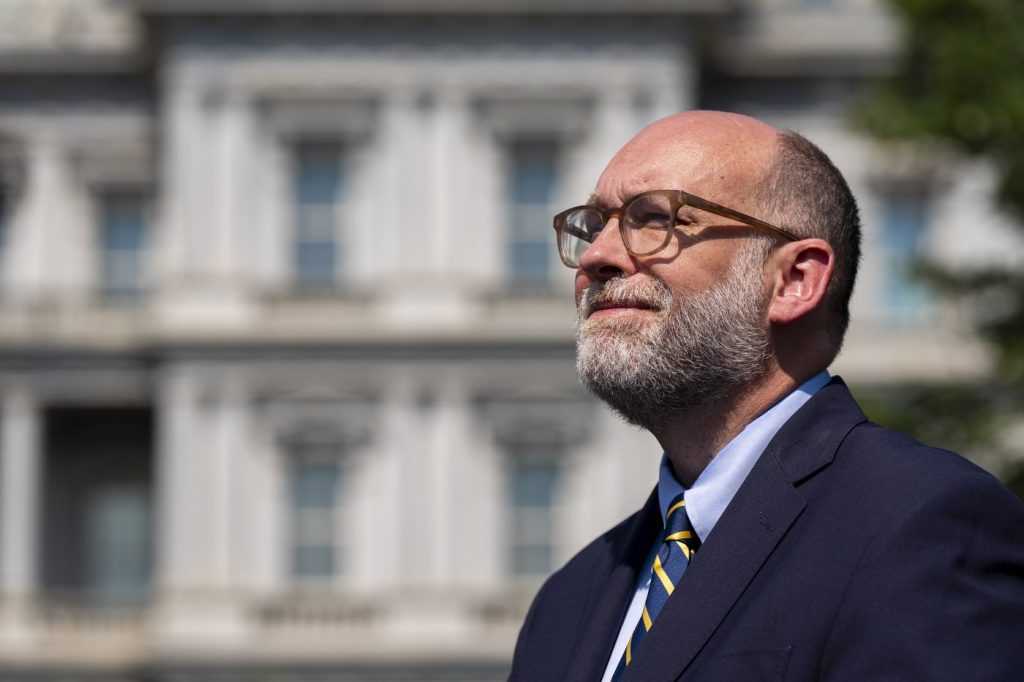On Thursday, the House is anticipated to approve President Donald Trump's request to retract approximately $9 billion allocated for public broadcasting and foreign aid. This initiative arises as Republicans scrutinize institutions and programs they consider excessive or misaligned with their agendas. The proposal, characterized by the White House as a test case, could signal further cuts if Congress consents. Notably, this approval would be a historic instance in decades where a president successfully submits such rescission requests to Congress; Trump is achieving nearly all the proposed cuts.
Critics express apprehensions regarding both the targeted programs and the implications of Congress yielding its spending authority to the executive branch. Investments, which received bipartisan backing initially, are being undone through party-line votes, raising alarm among Democrats. In the early hours of Thursday, the Senate passed the measure with a vote of 51-48, and not a single Democrat supported the proposal, with two Republicans also dissenting.
House Speaker Mike Johnson, a Republican from Louisiana, emphasized the necessity of fiscal responsibility, stating, “We need to get back to fiscal sanity and this is an important step.” The proposed package aims to eliminate approximately $1.1 billion for the Corporation for Public Broadcasting and nearly $8 billion for various foreign aid programs, many of which assist nations grappling with drought, disease, and political turmoil.
This attempt to recover federal spendings follows a recent success for Republicans, who pushed through a tax and spending cut bill with no Democratic votes. The Congressional Budget Office has warned that this legislation could escalate the U.S. debt by about $3.3 trillion over the next decade.
The proposed cut of $1.1 billion to the Corporation for Public Broadcasting essentially eliminates funding for the next two budget years. The White House alleges that the public media system showcases political bias and is an unnecessary expenditure. The Corporation distributes over two-thirds of its funding to approximately 1,500 locally-operated public television and radio stations, with the rest supporting national programming via organizations such as National Public Radio and the Public Broadcasting Service.
Democrats were unable to restore funding for public broadcasting in the Senate. Lawmakers representing rural areas expressed particular concern, with Sen. Lisa Murkowski from Alaska highlighting the critical role of public broadcasting in disseminating emergency alerts for natural disasters.
In the wake of discussions surrounding the bill, a 7.3 magnitude earthquake struck off the Alaska Peninsula, prompting local public broadcasting stations to issue tsunami warnings that urged residents to evacuate to higher ground. Further, Sen. Mike Rounds from South Dakota mentioned securing an agreement with the White House to reallocate some funds administered by the Interior Department, which would provide financial assistance to Native American public radio stations across several states. However, Kate Riley, president and CEO of America's Public Television Stations, criticized the agreement as inadequate, asserting it only constitutes a temporary solution that will still yield cuts and diminish services at the stations.
The rescissions package also envisions significant reductions in foreign aid, including cuts of $800 million for a program that supplies emergency assistance to refugees and $496 million designed to address food, water, and healthcare needs in disaster-stricken countries. Notably, a substantial reduction of $4.15 billion is proposed for programs aimed at fostering economic growth and democratic institutions in developing countries.
Democrats contend that the Republican administration's hostility towards foreign aid could undermine the United States' global standing and create opportunities for countries like China to exert their influence. Sen. Brian Schatz from Hawaii argued that investments in humanitarian programs are essential, asserting that the minimal cost to save lives or prevent disease transmission holds significant diplomatic value. “People are dying right now, not in spite of us but because of us,” Schatz declared, voicing his concerns regarding the potential consequences of the proposed cuts.
Following pushback from several Republicans, GOP leaders withdrew a proposed $400 million cut to PEPFAR, a well-regarded program combating HIV/AIDS, that has significantly improved health outcomes since its inception under President George W. Bush. Moving forward, Democrats maintain that this bill disrupts the traditional legislative process, which typically necessitates bipartisan cooperation for funding national priorities.
The White House's official rescissions request allows for the legislation to advance with a simple majority, circumventing the 60 votes usually required to break a filibuster. This procedural maneuver enabled Republicans to push the measure through their 53-47 majority. Ultimately, Senators Murkowski and Susan Collins from Maine broke ranks to join Democrats in opposing the bill, though some Republicans expressed concerns over the lack of transparency regarding the specifics of the cuts.
Russ Vought, the director of the Office of Management and Budget, praised the bill's impending passage as evidence of a commitment to fiscal responsibility, stating, “We’re happy to go to great lengths to get this thing done.” Addressing the relatively modest scale of the cuts, Vought acknowledged the challenges of passing such measures in Congress, predicting that another rescissions package is “likely to come soon.”











